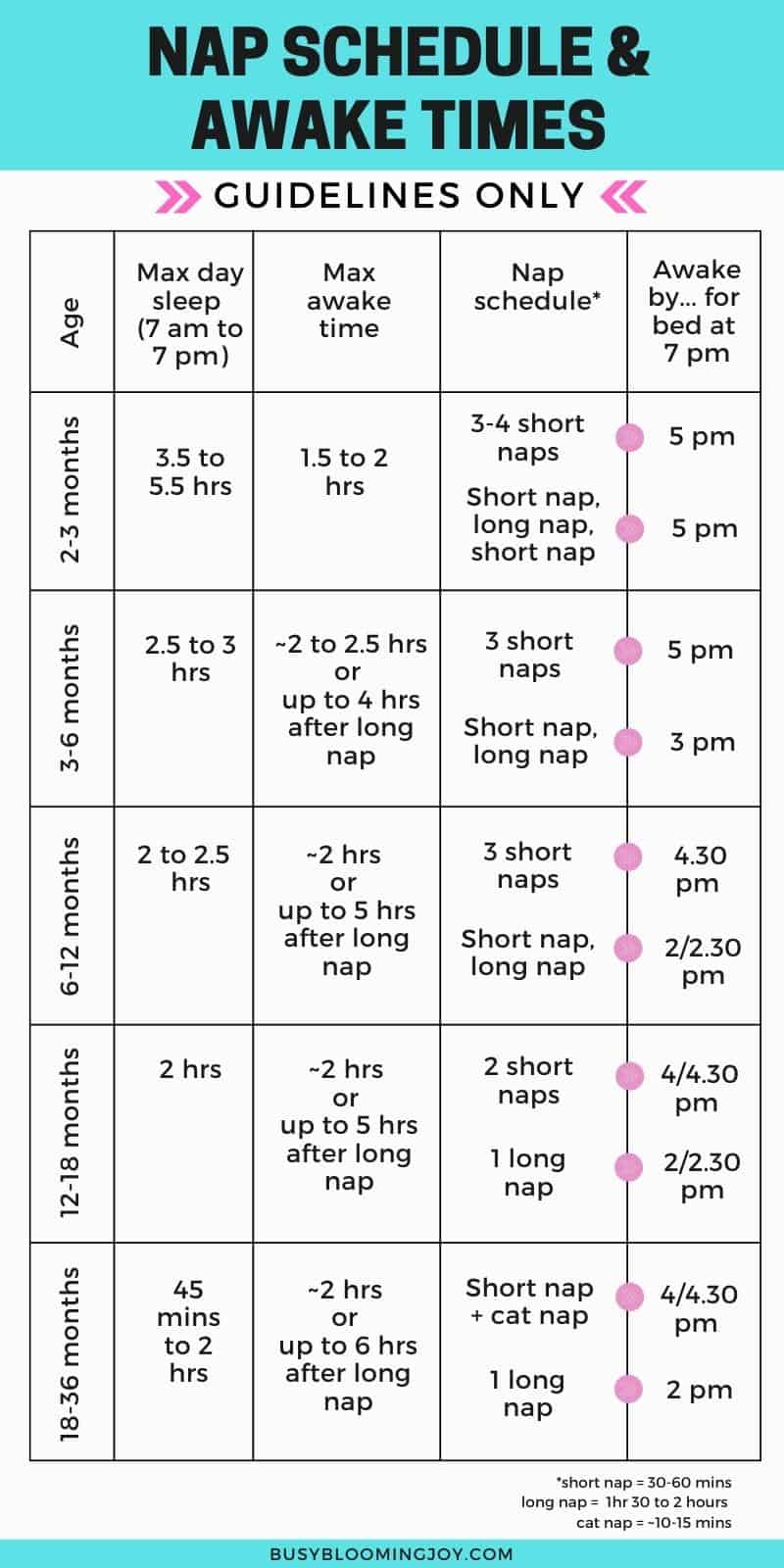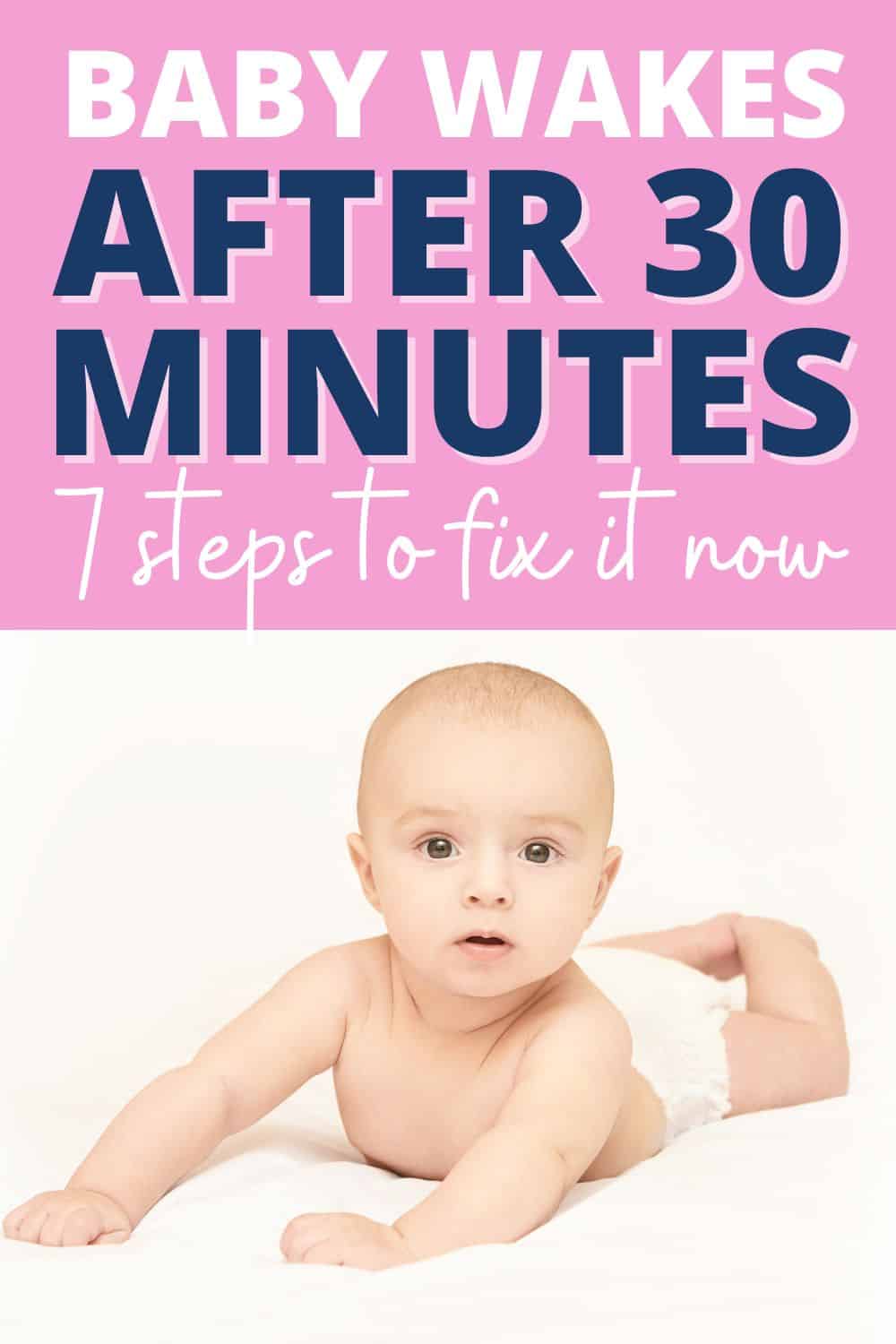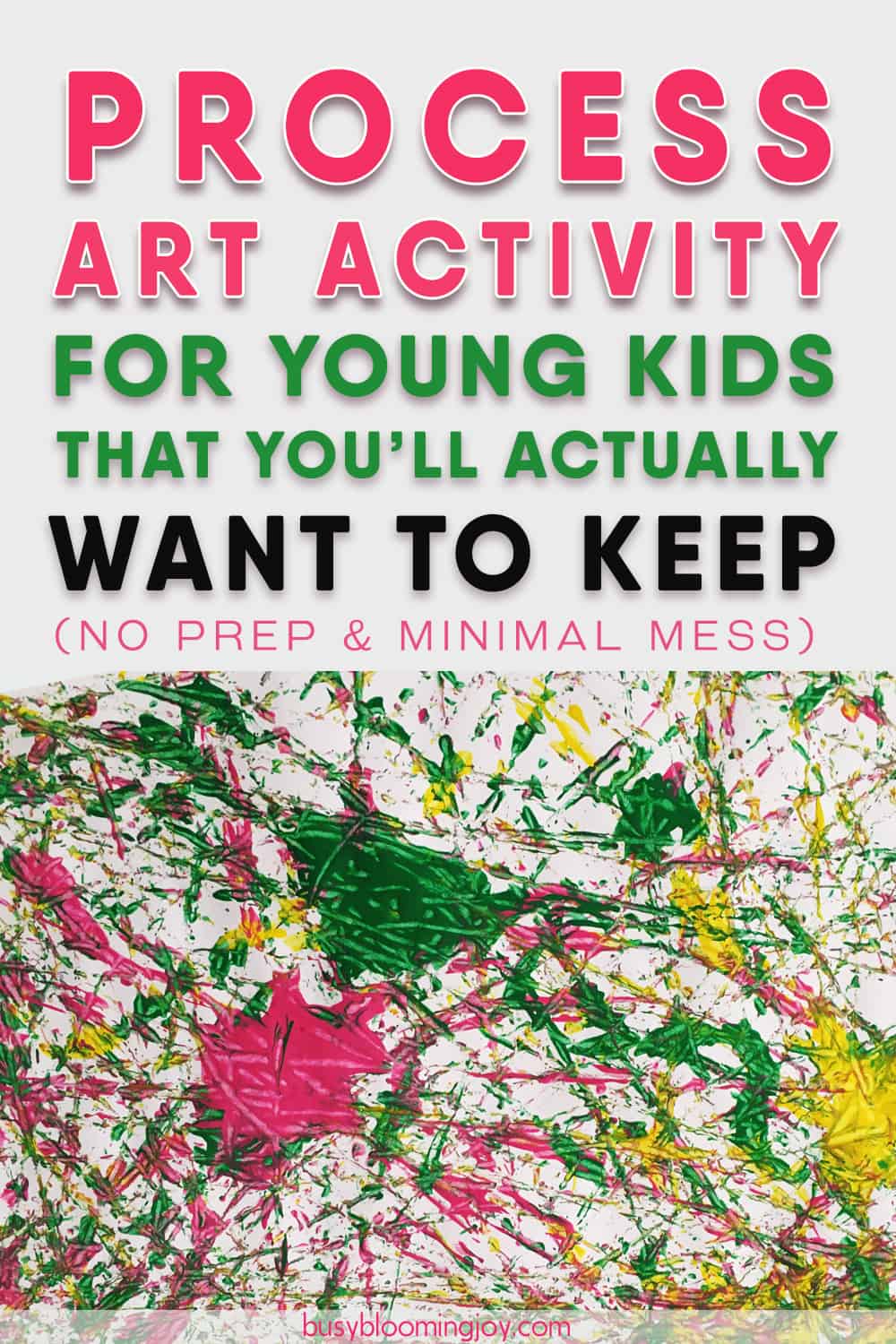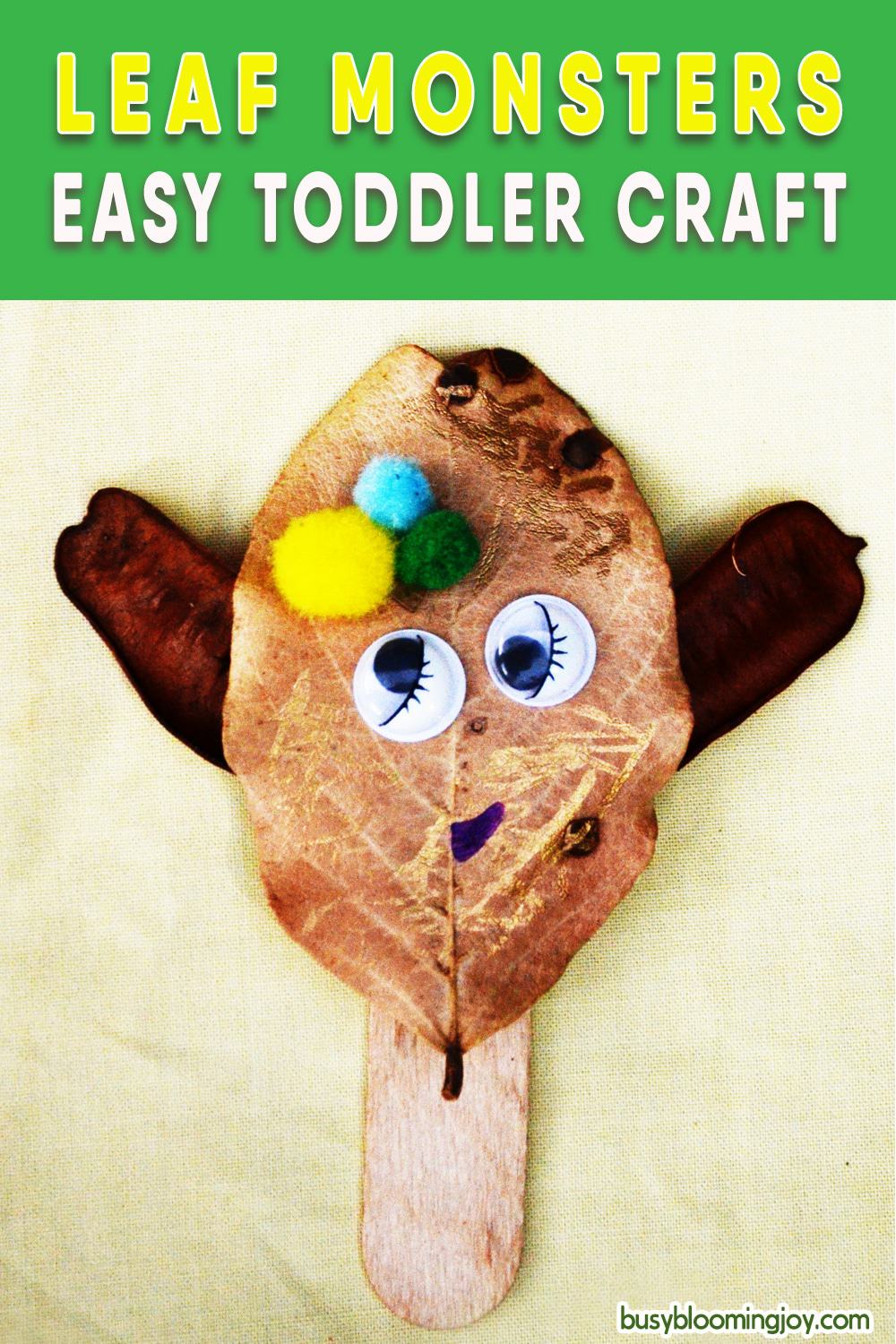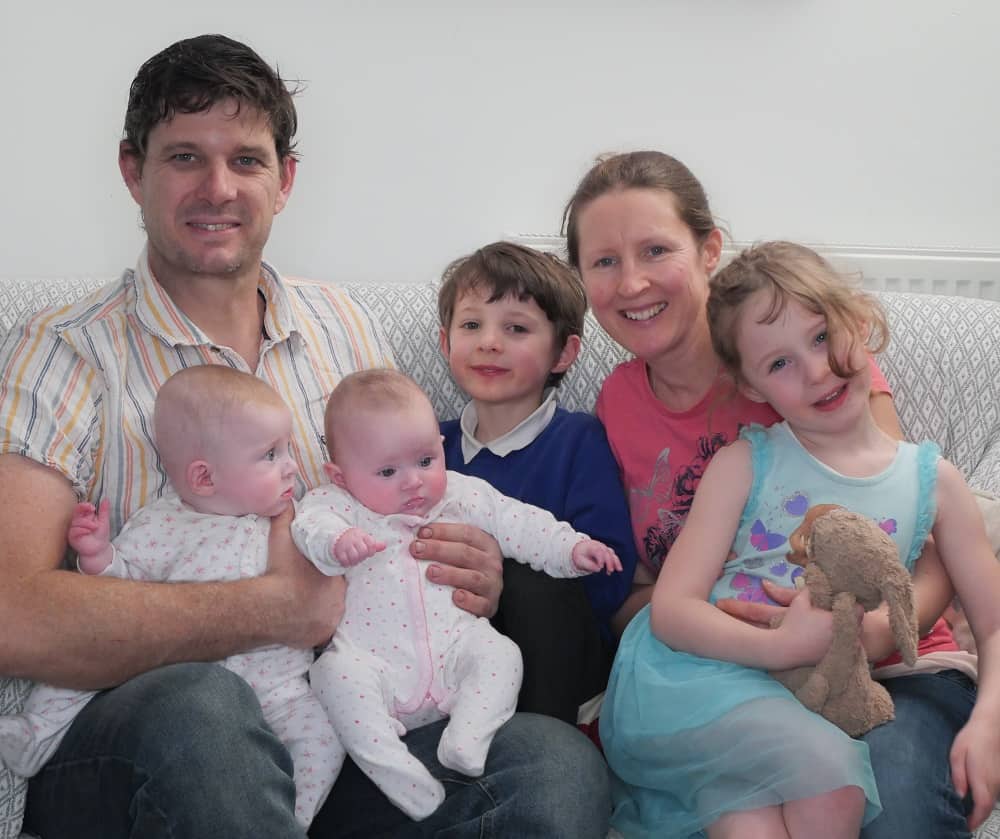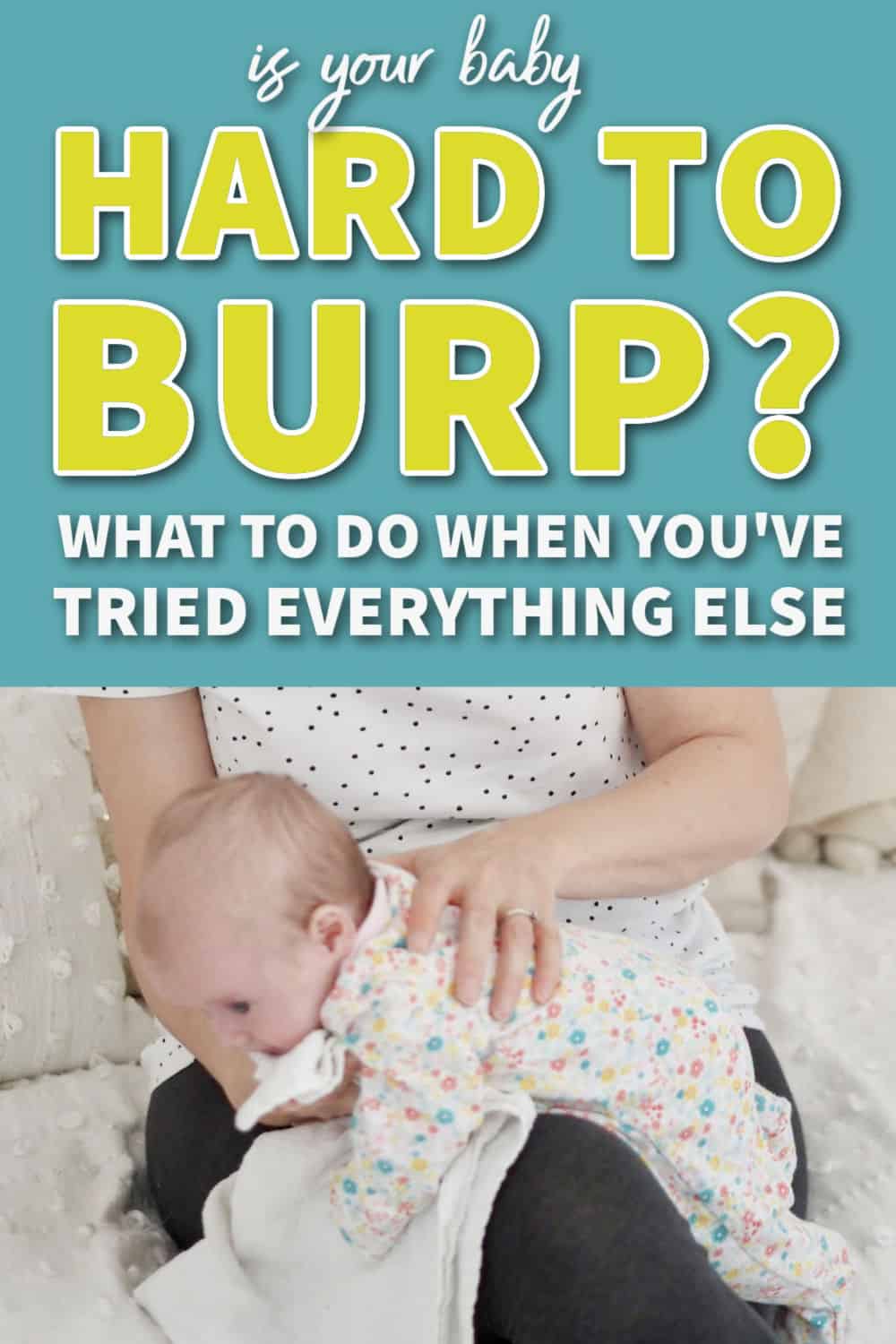“Help, my baby wakes up after 30 minutes at night!” I hear you, it’s frustrating.
You’ve just grabbed some food, sat down, remote in hand and just want to chill. And then you hear that all too familiar chatting, gurgling or perhaps crying.
Maybe your baby wakes after 20 minutes at night, before you’ve even made it to the couch. Or perhaps it’s 45 minutes after going to bed that your baby makes the call. And you just made it through the first episode of your favourite show.
Either way, it’s not long enough! The plan was that baby was down for the night or at least until the first night feed or dream feed.
Fear not, this is a common sleep issue and one that is fixable too. This post will first outline why baby wakes up after 30 minutes at night (or 20 minutes or 45 or somewhere in between).
And then give you the solutions to stop it happening.
This post contains affiliate links. If you click on one and make a purchase, we may receive a commission at no extra cost to you.
Table of Contents
ToggleIf baby wakes after 30 minutes at night, this is termed a “false start”
If your baby wakes shortly after going to bed, this is called a “false start”. The fact that is has it’s own terminology in the world of baby sleep, just proves how common it is.
The term baby false starts at bedtime are used for any wake up less than an hour after baby goes to bed. Typically false starts occur between 20 minutes and 45 minutes. Waking up after 30 minutes at night is particularly common.
How sleep cycles relate to a baby waking after 30 minutes at night
Newborn sleep patterns may seem erratic, but just like adults, babies sleep in cycles. They also have distinct sleep stages:
- “Active” sleep is equivalent to adult REM sleep (easily disturbed)
- “Transitional” sleep – another light sleep stage (easily disturbed)
- “Quiet” sleep is the final and deepest stage
Both adults and babies are easily disturbed and may wake during light sleep stages & between sleep cycles.
Baby sleep cycles are, however, much shorter than those of an adult, lasting around 30-60 minutes. So if your baby wakes up soon after going to bed at night there are a few options:
Baby wakes after 20 minutes at night or even sooner
It’s likely your baby never reached the deep sleep stage of “quiet sleep”. This is more like a catnap.
Baby wakes up after 30 minutes at night
Again, it’s possible your baby never reached the deepest sleep stage. Alternatively, baby wakes after the first sleep cycle at night, which was on the short side.
Baby wakes up 45 minutes after going to bed
Here your baby has probably managed a full sleep cycle before waking up.
For all scenarios, baby wakes either during or after the first sleep cycle at night.
Sleep drive, the circadian rythm & bedtime false starts
Sleep for both children and adults is driven by sleep pressure or drive and the circadian rhythm or body clock. It’s important to understand these in relation to baby false starts.
Sleep pressure or drive
The longer we stay awake the more drive or pressure we have to sleep. So sleep pressure starts to accumulate from the time we wake up.
After a nap, your baby’s sleep pressure will wear off to some extent and nap length plays a part. Longer naps that last 2-3 sleep cycles (i.e. 2-2.5 hours) are more restoratve and relieve more sleep pressure than shorter ones of only 1 sleep cycle or less.
So your baby will be able to stay awake longer after a longer nap.
Spoiler: with not enough sleep drive, your baby may wake up after 30 minutes at night… more detail coming up.

The Circadian Rhythm
This internal 24-hour body clock, which controls many physiological functions in our body, including sleep, is present in much of the animal kingdom. It’s regulated mostly by light: light inhibits the sleep-inducing hormone, melatonin.
So as darkness falls, melatonin levels rise, helping us to wind down and want to fall asleep. Melatonin levels are at their highest very early hours of the morning, meaning that babies (and adults) are less easily disturbed and transition between sleep cycles more easily during these hours.
It takes some time for the circadian rhythm to influence infant sleep, but is in full force by 6 months of age. So by this time or earlier, regular bedtimes and morning wake-up times are important in establishing good nighttime sleep. As is establishing the optimum sleep environment at bedtime.
Spoiler: poor sleep environment may play a part in your baby’s false start
Sleep drive + circadian rhythm
The combination of a high drive to sleep/sleep pressure AND increasing levels of melatonin after darkness should mean falling asleep at bedtime comes easily.
Waking up after the first sleep cycle at night often signals a mismatch in the two:
Lack of sleep drive i.e. undertiredness is normally the biggest single reason baby false starts at bedtime.
Why does my baby wake up after 30 minutes or after the first sleep cycle at night?
To recap the above, a mismatch in sleep drive/pressure and the internal body clock, the circadian rhythm, is a likely reason your baby wakes up 30 minutes after going to bed or anytime less than an hour after every bedtime.
There are other reasons, however. The full list of possible reasons for baby false starts are as follows:
- Undertiredness
- Overtiredness
- Sleep associations
- Sleep environment issues
- Hunger
- Trapped wind
- Separation anxiety
#1: Is UNDERTIREDNESS the reason for baby waking up after the first sleep cycle?
If your baby isn’t that tired at bedtime and lacks sleep drive, they may wake up shortly after. They may not even manage a full sleep cycle, waking before reaching the final deepest stage of sleep. If your baby wakes up after 30 minutes or less this could well be the reason.
Key signs not enough sleep drive is causing baby to wake up after 20, 30 or 45 minutes
- baby is wide awake at bedtime and wants to play
- baby needs assistance falling sleep
It’s also likely that:
- baby had a late and/or long nap close to bedtime
These false starts at bedtime may be interspersed with nights where your baby takes much longer to settle to sleep, well in excess of half an hour. On these nights, once settled, they may then stay asleep.
Ideally, you want your baby to settle to sleep easily and in less than 25 minutes. A baby taking longer than this to settle and/or wakes after the first sleep cycle at night signals lack of sleep drive.
1. Solution to fix bedtime false starts due to undertiredness
Too much daytime sleep and/or naps too late in the day are the likely cause, meaing your baby has not aquired enough sleep pressure by bedtime. This should be a relatively straightforward fix, by altering daily nap hours or nap times.
Here are some guidelines on nap lengths and nap time by baby age:
2 to 3 months
Ensure your baby is up from their last nap by 5 pm in order to go to bed at 6.30/7 pm (dependendent on age).
3-6 months
From this point on, nap length comes into play as well as the time baby is awake. If baby is taking a long 2 hour nap at lunchtime, they may not need a nap later in the day. In this case, they’d need to be up from a long nap by 3pm latest.
If your baby does need a second nap, ensure this is short (45 minutes i.e. one sleepy cycle or less), and baby is awake by 5 pm. This should allow enough sleep drive to accumulate in order for baby to go to bed at 7 pm and not false start.
If, after trying this, your baby still wakes up after 30 minutes or one sleep cycle at night, then cut that last nap back to 30 minutes or even less. A shorter, less restorative nap, will mean your baby doesn’t recooperate as much sleep pressure.
6-12 months
Again, nap length is important. A good 2+ hours restorative hours in the middle of the day will mean your baby can happily manage 4-5 hours awake before bedtime. So ensure your baby is awake at 2.30 pm to be ready for bed by 7 pm.
However, if baby is only taking short naps, then they can wake from their last nap later. Ensure they’re up by 4.30 pm in order to be ready for bed at 7 pm.
12-18 months
During this time naps will probably consolidate to 1, hopefully, long nap. Ensure your baby is awake by 2.30 pm lateset.
If your baby has two shorter naps, ensure they’re up by 4/4.30 pm.
18-36 months
Your busy toddler will need one long nap of 1.5 to 2 hours, gradually shortening to 45 minutes/ 1 hour as they approach 3. Ensure they’re awake by 2.30 pm cutting back to 2 pm as they get older.
#2: Is OVERTIREDNESS the reason baby wakes up after 30 minutes at night?
So you want your baby to build up sufficient sleep pressure to need to sleep and not wake up soon after. Unfortunately, it’s not as simple as keeping your baby awake as long as possible. Overtiredness can wreak havoc with bedtime, cause early morning wakings, short naps and more.
This is due to the stress hormong cortisol, which is the main driver of the fight-or-flight response.
A natural rise in cortisol throughout the day is normal and natural. By the end of the day when we start to slow down and darkness approaches, melatonin should take over. When asleep, cortisol levels drop further.
When babies become overtired, the response is similar to the fight-or-flight response. Cortisol floods the body helping keep baby awake and alert, hyperactive even.
When an overtired baby does sleep, cortisol can disturb and wake them. This is more likely during the early part of the night when cortisol levels are yet to drop.
So it could be the reason that your baby wakes after the first sleep cycle at night, at around 45 minutes. Or they could even wake midway during light sleep stages and wake up after 30 minutes at night.
Key signs overtiredness is the reason baby wakes after first sleep cycle at night
- baby is fussy and irritable approaching bedtime
- baby struggles to settle to sleep and appears to fight sleep
- baby seems inconsolable – you may suspect colic or the witching hour
- alternatively baby may fall asleep very quickly, within 5-10 minutes
- baby may also wake early in the morning and/or early from naps and once awake seems tired and irritable
At least one of the following is also likely:
- baby was awake a long time since the last nap
- baby had too few naps
- baby didn’t have any long restorative naps
2. Solution to fix bedtime false starts due to overtiredness
Preventing overtiredness at bedtime involves a few different strategies:
#1 Figure out your baby’s unique awake time
Their “awake time” or “wake window” is the time in which they can happily stay awake before needing to sleep. As mentioned earlier, loner naps are more restorative and relieve more sleep pressure. So babies can stay awake longer after longer naps.
Here’s a guide to the awake times by age and stage (remember all babies are different).
- 2-3 months – 1.5 to 2 hrs
- 3-6 months – 2 to 2.5 hrs or 3/4 hrs after long nap
- 6-12 months – 2 hrs or 4/5 hrs after long nap
- 12-18 months – 2 hrs or 4/5 hrs after long nap
- 18-36 months – 2 hrs or 5/6 hrs after long nap
More on awake times and overtiredness here.
This summary chart combines maximum awake times to avoid overtiredness and last wake up times to build up sufficient sleep pressure. Following this will help avoid your baby waking up 20, 30 or 45 minutes after going to bed.
Other than figuring out your baby’s unique awake time, to avoid overtiredness you also want to:
#2 Encourage a longer restorative nap or two, dependent on age
Check out the following. which is all about naps: 9 tactics to take 2 hour naps from dream to reality
#3 Recognise the signs and signals that your baby is ready to sleep – settle and put baby to bed before they become overtired (check out: 6 newborn baby cues you need to know)
#3: Is a SLEEP ASSOCIATION the reason baby wakes up after the first sleep cycle?
A sleep association, is anything that baby associates with going to sleep. They both signal to baby that it’s time to sleep AND aid the falling asleep. They develop around the 3-4 months of age, when babies often become fully awake between sleep cycles.
Common sleep associations are feeding to sleep, rocking, patting, sleeping in your arms, the bedtime routine, a dark room, white noise and so on. Sleep associations become an issue when they require our involvement. These ones are often termed negative sleep associations, sleep props or crutches.
If your baby fell asleep while nursing, he or she will normally need to be nursed to fall back to sleep.
Key signs a sleep association means baby wakes after first sleep cycle at night
If your baby wakes every 45-120 minutes all through the night a negative sleep association is almost certainly the cause. Your baby needs assistance to fall back to sleep having woken between sleep cycles.
A baby with a very strong negative sleep association may wake every hour all night long.
However, once reaching the early hours of the morning when sleep is deepest, some babies may be able to do two or three sleep cycles at a time. This’d mean they’d wake every 90-12o minutes during those hours.
But in the early evening, a baby with a sleep association would almost certainly wake up after the first sleep cycle, at around 45-60 minutes, rather than after 20-30 minutes.
If this is the case, they’ll wake up shortly after going to bed too.
So the key signs a sleep association is the reason for a false start are that your baby:
- is 4 months or older AND…
- wakes up every 45 minutes (or after every sleep cycle) in the early evening and approaching wake up time in the morning
- wakes every 45, 90 or 120 minutes (or after every 1 -3 sleep cycles) in the early hours of the morning
- needs assistance to fall back to sleep every time, may eat a little but not take a full feed (because not hungry)
- normally needs help falling to sleep at the begining of the night as well, although if very sleepy, may fall asleep unaided
- only takes short naps in the day, maximum 45-60 minutes, waking up after one sleep cycle
3. Solution to fixing negative sleep associations
Teaching your baby to link sleep cycles and settle themselves back to sleep is a tricky process, but it is possible. To encourage independent sleep, start by building other “positive” sleep associations such as:
- a solid and consistent routine at bedtime (bath, pajamas, bedtime story, last feed)
- optimal sleep environment
Gradually you can then remove the negative association and begin to put your baby into their crib or bassinet more and more awake. This also helps if baby has a high sleep drive, but is not overtired, due to appropriate awake times and good sleep and nap schedule.
It’s also important to “pause” before rushing in to give your baby chance to self-settle back to sleep.
If you’re reading this before your baby has turned 4 months, check out our recommended newborn baby sleep strategies which will help create good sleep habits and avoid negative sleep associations. (Even if your baby has reached this age, this will be a useful read.)
#4: Does baby wake up after 30 minutes due to poor SLEEP ENVIRONMENT?
If you have a busy househould and/or it’s the summer and it’s still light outside at baby’s bedtime, it’s likely that your baby’s sleep space is far from optimal.
Noisy siblings and other household noises such as slamming doors, barking dogs etc can potentially disturb your baby when in light sleep stages and/or in between sleep cycles.
Note that consistent loud noises can be a good thing. Babies are soothed and calmed by low, rumbly consistent noise, like white noise, as that’s what they were used to in the womb. It’s fluctuating noise levels and higher pitches that can disturb them.
The other big issue could be darkness. Light prevents the production of melatonin so can inhibit sleep, even if baby’s sleep drive is high.
After a little bit of sleep, whether that’s more of a catnap (baby wakes up after 20 minutes) or after one sleep cycle at night (45 minutes after going to bed) some of the sleep pressure is removed. And if it’s too bright, there’s no melatonin to help promote sleep.
Light will, in fact, stimulate your little one’s brain to wake up. Meaning baby may wake up fully at this point.
Key signs the sleep environment means baby wakes after the first sleep cycle at night
- sleep environment is noisy with inconsistent sounds and noise levels
- sleep environment is too light
- baby sleeps better the rest of the night when undisturbed
- baby also struggles with short naps in the day, only staying asleep one sleep cycle
4. Solution to fixing the sleep environment
Creating a sleep-inducing environment is fairly straightforward. Simply play white noise and darken the room or make it pitch black for younger babies.
Dark/pitch black
You want it to be pitch black for newborns and young babies. I.e. so dark that you can’t even see your hand in front of you. After a year old, a little light will be ok.
There are blackout blind and curtain recommendations here. Otherwise, line the window with blackout material or invest in blackout window films.
White noise
In terms of replicating the intensity and type of noise your baby experienced in the womb, white noise is the best. This will be comforting and will also drown out other noises. But not all white noise is equal! It needs to be:
- low-pitch (think the low, rumbly and monotonous drone of the car engine)
- loud around 60-75 dB (think vacuum cleaner or loud shower)
Try the Hatch Baby White Noise Machine, Night Light and Time-to-Rise. (There’s white noise and an audio monitor for the baby stage. Then for the toddler and school years you can use it as a night light in the toddler years and set it to change color at wake up time.)
For baby’s who are yet to roll, we’d also recommend swaddling baby for sleep. Swaddling helps to calm baby as well as prevent the moro reflex from disturbing them. Read more on why swaddling is best for a newborn here. For a full guide on newborn sleepwear here.
#5: Is HUNGER causing baby wake to wake up after 30 minutes at night?
Hunger is also a possible reason for a young baby to wake up after 30 minutes or after the first sleep cycle. They simply may have fallen asleep before eating enough.
This is much more likely in a baby 6 months or younger who has yet to start solids and may fall asleep while eating. It’s also more likely to happen during growth spurts.
Older babies are much less likely to wake 20, 30 or 45 minutes after going to bed due to genuine hunger.
Key signs a bedtime false start is due to hunger
- baby falls asleep during the bedtime feeding
- baby wakes up looking for milk and then eats a significant amount
5. Solution to fixing false starts due to hunger
Try to ensure your baby has a good feed before bedtime. This may mean starting the feed earlier and/or trying to keep your baby awake while eating. Tickling toes, stripping a layer and keeping lights on while feeding can help.
Ensuring a decent feed at every feed is important for successful breastfeeding. It can also help to follow a loose breastfeeding schedule to ensure baby is getting enough calories in daylight hours.
You may also look to adjust your baby’s day schedule and try to encourage a short afternoon nap. This will help revive your baby a little to stay awake during the last feed. (Check the awake times above to ensure baby is then not sleeping too long or too late.)
#6: Is WIND waking baby up after the first sleep cycle at night?
Babies are gassy! They normally need a lot of help releasing trapped wind before they’re sitting. So for the first 6 months, you want to burp your baby, both during and after each feed. (This one also only applies to young babies.)
If baby falls asleep without burping, there’s a possibility that gas bubbles may cause them discomfort, enough to wake them when in light sleep stages or after the first sleep cycle at night.
Key signs the bedtime false start is caused by wind
- baby shows signs of discomfort when waking e.g. grunting, wriggling, kicking legs to try and get comfortable
- baby fell asleep during the last feed and you lay them straight down
- as soon as you pick baby up, baby burps!
If wind was the issue, having burped, baby should quickly settle back to sleep after.
6. Solution to fixing false starts due to trapped wind
These ones are fairly obvious and not all that difficult either.
- try to burp your baby before they fall asleep
- if they don’t, simply hold your baby upright for a good 20 minutes or so to try and let any gas bubbles surface naturally
This is a must read if you struggle to burp your baby: How to burp a newborn baby that won’t burp (10 tips for your hard-to-burp baby)
#7: Is SEPARATION ANXIETY the reason baby wakes up after 30 minutes at night?
Separation anxiety is a normal part of development when older babies/young toddlers fear that a parent leaving is not returning. It normally peaks between 10 and 18 months and ends around age 3.
A baby who wakes briefly between sleep cycles to find that they’re separated from mom, or someone else, may wake fully and cry. It’s a similar scenario to a sleep association.
A baby struggling with separation anxiety may also manage a longer stretch of sleep in the early hours of the morning when sleeping deeper.
Key signs your baby has separation anxiety
Your baby may:
- cry when you leave the room or are simply out of sight
- be clingy with new people and in new environments
- won’t settle to sleep unless you’re in the room
7. Solutions for working on separation anxiety
Being responsive to your baby when they’re anxious with cuddles is really important. This will help them feel secure and in time the separation won’t cause as much anxiety.
You can also help your baby learn that just when something or someone is out of sight, that they still exist and will come back. This is termed “object permanence“.
- Play peekaboo with your baby, hiding your face and then reappearing agin
- Show your baby a ball then hide it under a cup in full view. Then simply remove the cup to reveal the ball again
- Allow and encourate your baby to play independently and out of sight (as long as safe, of course)
- Practice going into a different room to your baby, telling them you’re coming back and then returning
You can also reduce the chance of your baby being disturbed after the first sleep cycle by ensuring the optimal sleep environment (white noise and blackout curtains).
The following probably aren’t reasons why baby wakes up after 30 minutes at night
Night terrors
Night terrors aren’t common in babies. They normally only occur in children aged 4 to 12 years old, usually happening a few hours after they’ve fallen asleep, rather than in the first hour.
When a child wakes from a night terror, they’re likely to scream and shout and, not surprisingly, act very frightened. This may be accompanied by other physical fear responses, like sweating, racing heart rate and faster breathing. (Read more on night terrors here.)
So unless your baby wakes up after 30 or 45 minutes at night like this, it’s highly unlikely to be a night terror.
Sickness
If your baby is sick they’re likely to wake multiple times throughout the night, not just a short time after going to bed. Having said that, mild sickness may disturb your baby in the early evening before they settle into a deeper sleep, but you’d still expect more than one wake up.
Of course, if you have any health concerns, seek proffessional medical advice.
More sure what to do when baby wakes after 30 minutes or after the first sleep cycle at night?
Your baby waking soon after going to bed is one of many sleep challenges we’re faced with during the early years. Hopefully, now you have a better idea of why it’s happening and how to remedy it with an effective sleep plan.
The number one reason is not enough drive for sleep. So look at your naptime routine and ensure your baby is not getting enough day sleep. Lots of sleep pressure should stop your baby waking after 20, 30 or 45 minutes after going to bed.
But don’t keep baby awake so long that they become overtired. Ensure wake windows are appropriate for your baby’s age – refer to (and pin!) the chart above to use as a guide.
Looking for more expert baby tips:
FAQs on false starts at bedtime
Does overtiredness cause night waking?
Overtiredness will iniatiate a stress response in your baby, which results in the production of cortisol. This helps them to stay awake, but also causes frequent night wakings when your baby finally drifts off.
This is because cortisol is still circulating the body. During lighter sleep stages and between sleep cycles it can cause baby to wake up multiple times in the night. (The longer baby sleeps, the more it drops, eventually returning to basal levels.)
So yes, overtiredness can cause additional night wakings.
How do I get my baby to sleep longer than 30 minutes
If your baby is only sleeping for 30 minutes at a time, he or she is struggling to link sleep cycles. There’s also a chance they’re not managing a full sleep cycle which will mean they’re likely to wake tired and grouchy.
First, look at the sleeping envrinoment. It’s possible that issues with your baby’s sleep space is causing them to be disturbed. Make sure it’s as dark as possible and use white noise to muffle external household noises and also to soothe and comfort.
Next, try to ensure your baby is tired enough (has enough sleep drive) by checking they’re awake times are appropriate for their age. The guide linked will also ensure your baby won’t be too tired, which can also be an issue.
It’s then a case of helping your baby link those sleep cycles by soothing them back to sleep each time they wake. After a period of time when they’re sleeping longer, gradually remove the help you give them.
If your baby falls asleep in your arms, and wakes when you put them down, hold them until they reach the deeper sleep stage. This’ll take around half an hour. Your baby will be a dead weight in your arms at this point. You should then be able to put them down without them waking.
To work towards longer sleeps independently, follow this gentle sleep training method for getting baby to sleep in their bassinet instead of your arms.
How do I stop my baby waking every hour at night
If your baby wakies every hour at night, it’s likely they have a sleep association. Babies (and adults) wake briefly between sleep cycles and whatever it is that helped them settle to sleep, they’re look for when waking at night. So if they were rocked to sleep, they’ll expect to be rocked to fall back to sleep.
To stop your baby waking every hour at night, try to help them form sleep associations that don’t require your input. A good bedtime routine, white noise, darkness and swaddling (for newborns not yet rolling) provide a sleep-inducing environment. They will soothe and help baby fall asleep.
The white noise, darkness and swaddling will also become sleep associations. After a week or so you can start to gradually cut back how much you aid your baby to fall asleep. Eventually, when they wake they’ll be able to fall back to sleep without you. They may still wake every hour, but you won’t!





